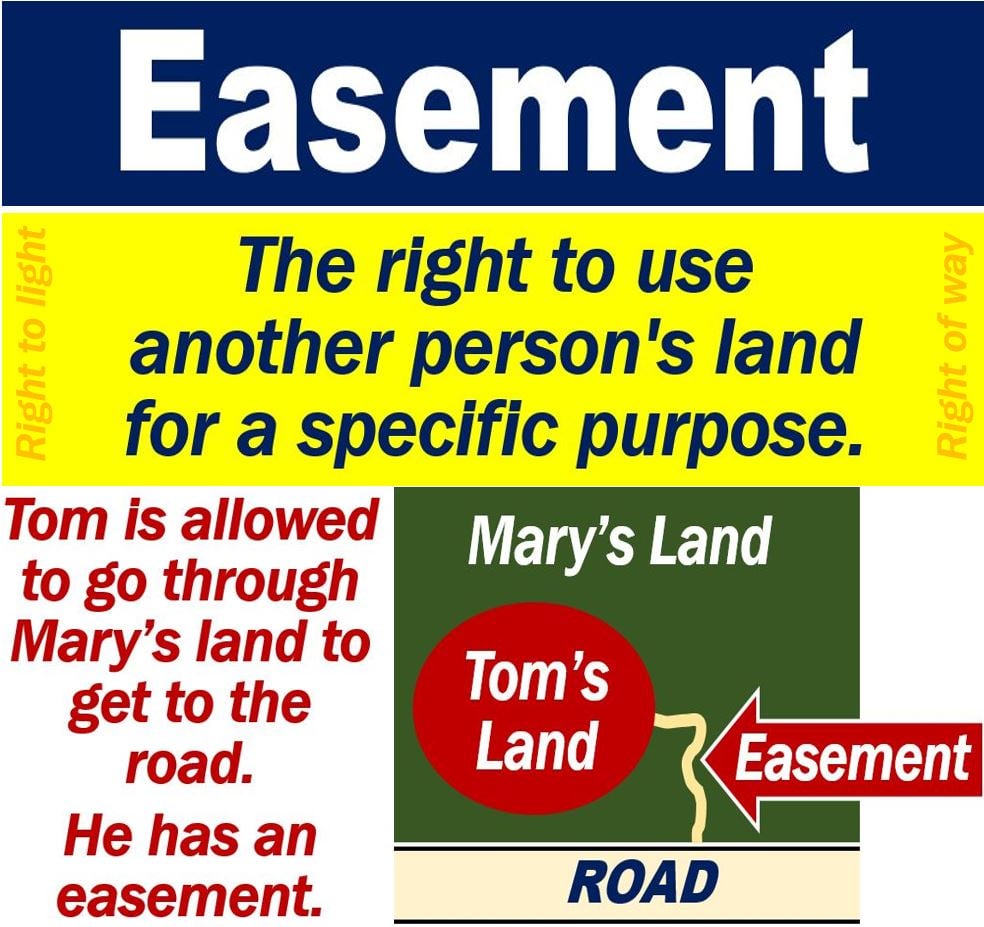An easement is the right to use another person’s land for a specific purpose. It is a non-possessory right to use or enter a property, i.e., somebody else’s property. It could be, for example, the ‘right of way’ which one landowner enjoys over another person’s land. In most cases, the easement belongs to a neighboring landowner.
The neighboring landowner has the right to use the land next door typically for the benefit of his or her own land.
There are many types of easements. However, the most common forms are a right to light, right of way, and right of support. The right to artificial waterways is also common.

Easement – example
Let’s imagine you are a farmer. However, your farm is completely landlocked, i.e., surrounded by other people’s land. Your farm is one mile from the nearest road.
Unless you own a helicopter or can do one-mile jumps, the only way to get to that road is by crossing your neighbor’s land. You have the right to cross your neighbor’s land. That right comes in the form of an easement.
You can also lawfully connect to your utilities via your neighbor’s land. The word ‘utilities,’ in this context, refers to electricity, natural gas, and water. In some cases, you have the right to erect, for example, water pipes over the neighbor’s land.
However, you might only be allowed to build a pipeline under their land. It depends on the type of easement you have.
An easement is helpful for providing pathways across pieces of property. It allows people to access other properties or a resource. Perhaps you must, for example, walk over a person’s land to get to a public beach.
Most jurisdictions treat an easement as a property right and also as a type of property.
Etymology of easement
Etymology is the study of where words come from, i.e., their origins. It is also a study of the history of the meanings of words.
The term first appeared in the English language in Britain in the late fourteenth century. At the time it meant “redress, compensation.”
The 14th-century English word came from the Old French word Aisement which meant “use, enjoyment, convenience.”
It was not until the early fifteenth century that the word acquired the meaning “legal right or privilege of using something not one’s own.”
